News from Maison de la Gare
A Place to Play Instead of Begging
Tweeter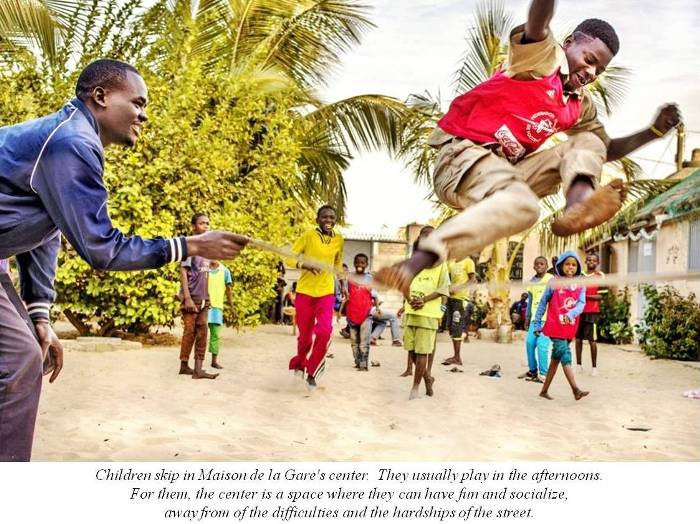
Spanish journalist José Naranjo discovers Maison de la Gare
Maison de la Gare in Saint Louis, Senegal, rescues and welcomes street children who have
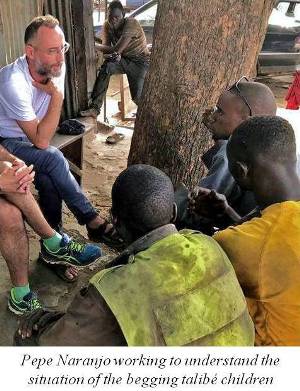 run from their Koranic
schools, where in many cases they are mistreated and exploited.
run from their Koranic
schools, where in many cases they are mistreated and exploited.
Ten years ago, Issa Kouyaté worked as a cook at a famous Saint Louis hotel. Despite being
born in Dakar, despite being Senegalese, the drama of the talibé children in this city
shocked him. Kouyaté recalls: "No matter where you go, no matter where you look, they are
everywhere. So I decided to do something. At the hotel, we had to throw away the food
that was not used in 48 hours, so I picked it up and took it to the boys who had escaped
the daaras, who gathered at the old train station at night to sleep." However, in 2009
the city government decided to turn the station over to the neighbouring market and the
children were left without their night refuge. In that moment of darkness, Maison de la
Gare's project began to have light of its own at a nearby site.
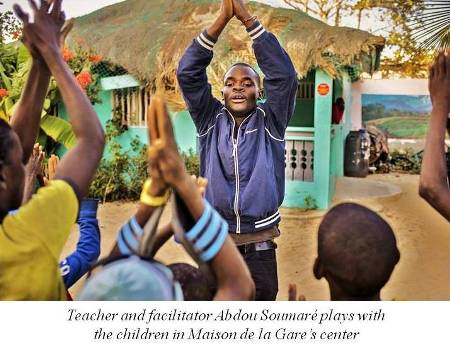
"It was a garbage dump," continues Kouyaté, "but we worked hard and made it a home."
Today, Maison de la Gare has three classrooms for literacy classes, an infirmary, showers
and toilets for the kids, a library, a large play space and an eight-bed emergency
shelter, thanks to the support of international organizations such as The Global Fund
for Children, the United Nations and the European Union, hundreds of individual donors
around the world and, above all, the energy and idealism of dozens of volunteers. Last
year, Kouyaté was named "Hero" of the fight against human trafficking by former US
Secretary of State John Kerry. But the cold, hunger and hardship
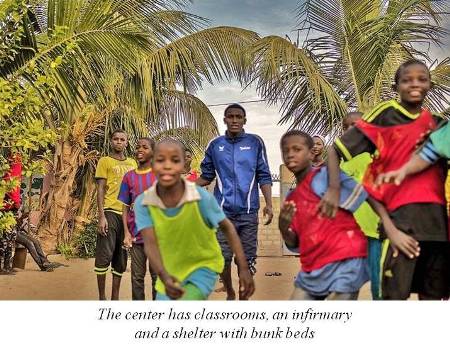 suffered by the small
talibé children of Saint Louis still persist.
suffered by the small
talibé children of Saint Louis still persist.
Maison de la Gare is a refuge, a safe place, a space where children find everything
they do not have. Abdou Soumaré, teacher and facilitator, teaches notions of computer
science and literacy in the sand-filled yard. Meanwhile, nurse Awa Diallo heals the
visible wounds of children ... the invisible wounds are another story ... especially
burns, cuts and scabies. A couple of nights each week, Abou Sy, Modou Samb and Samba
Ndong, sometimes with the Issa leading, are in charge of the "night rounds". They
look for runaway children in every corner, under each upturned fishing boat, among the
street stalls, behind the pillars of the bridges, under balconies and on abandoned
prayer rugs.
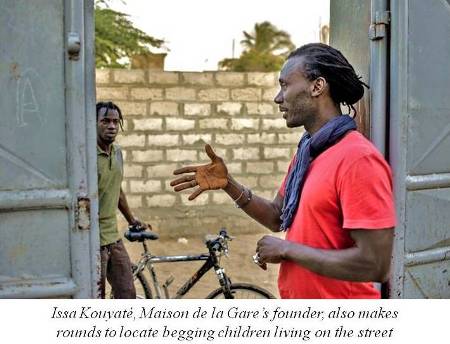
"The sad thing is that a part of society takes advantage of them, uses them as cheap
labor to run errands, drive a wagon or clean up," adds Kouyaté. "When you stand next
to a talibé and care about him, people look at you in surprise. It is as if the talibé
children don't exist, as if they are objects. We know that we are swimming against
the tide, that we are facing a very strong power; they have threatened us, they have
called the police, they try to turn people against us. But we believe that we are
changing things, as these children have understood that there is a life beyond what
their marabout says. "
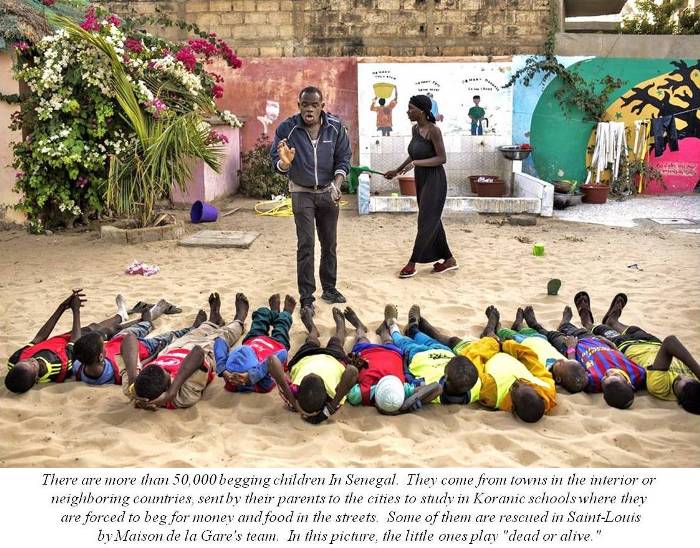
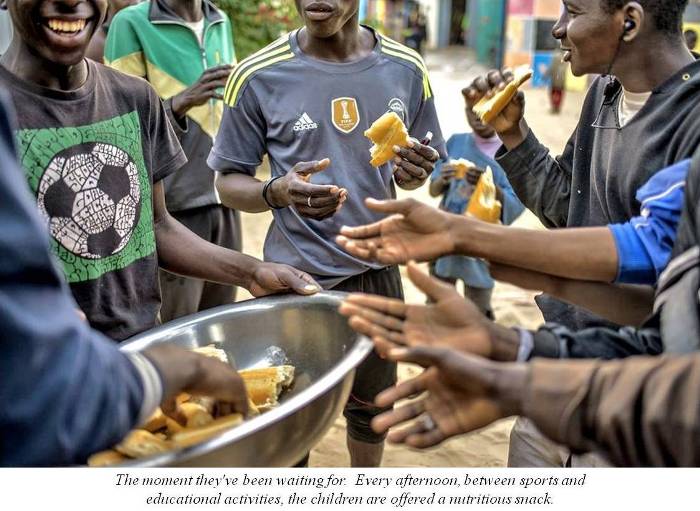
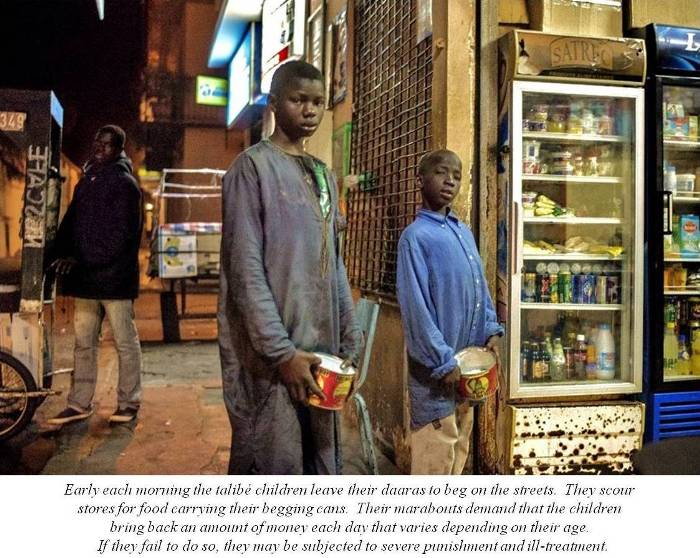
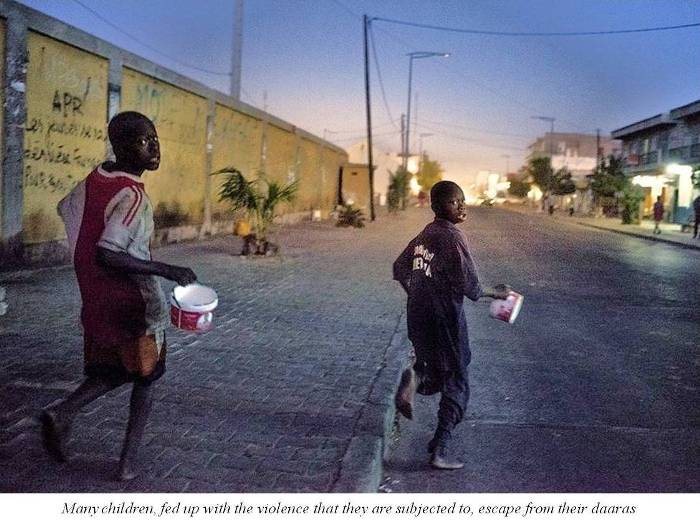
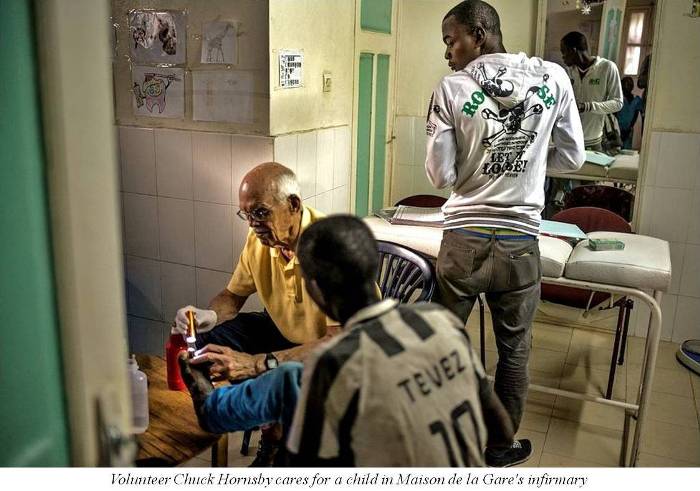
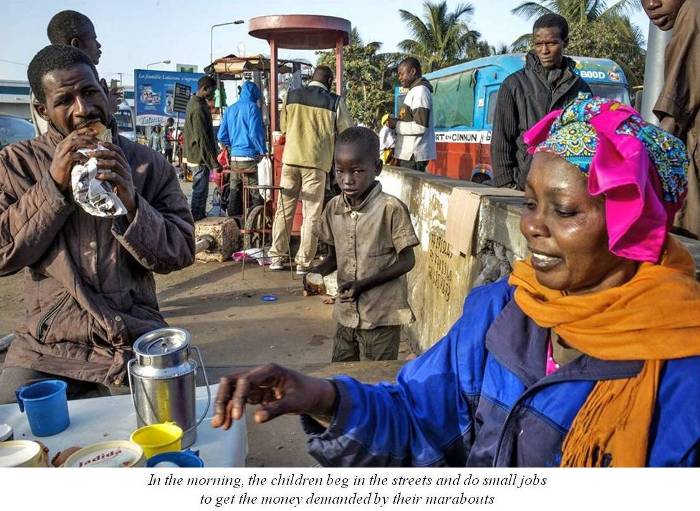
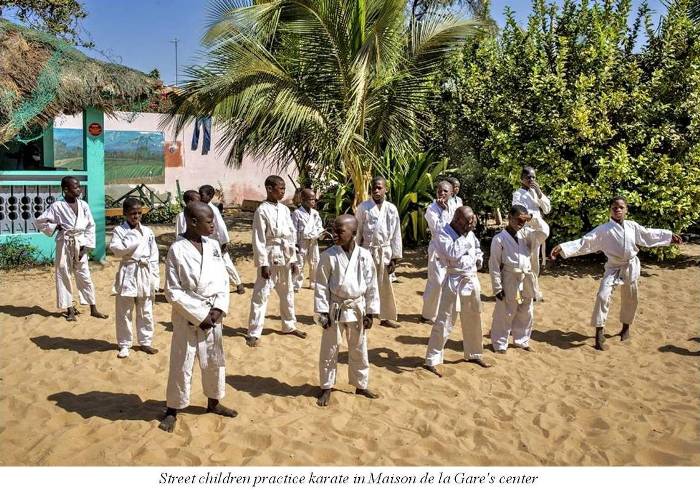
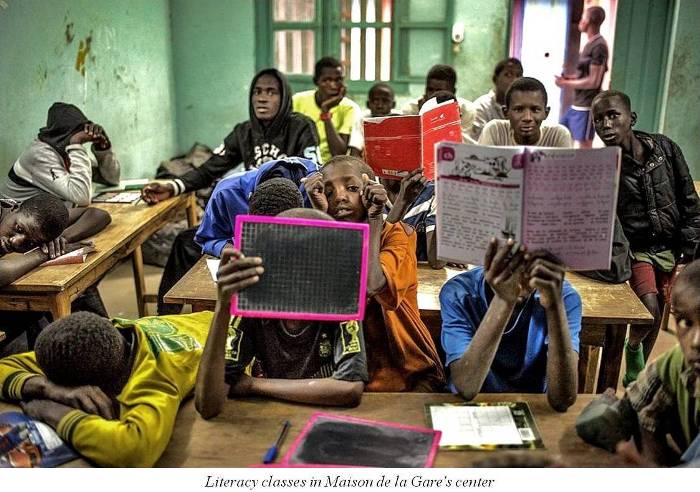
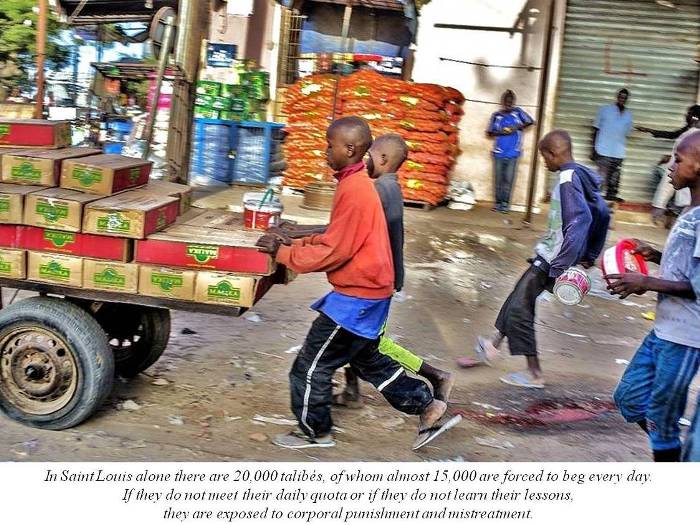
________
Our sincere thanks to Alfredo Cáliz for the dramatic photographs illustrating this report.







